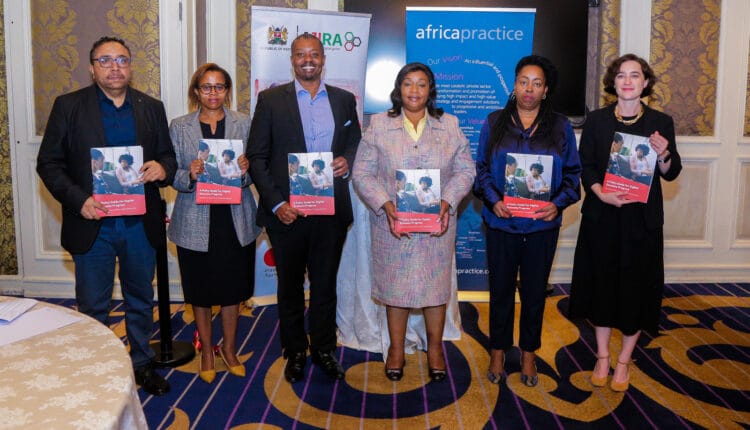New Toolkit Provides Policy Blueprint for Reforming Kenya’s Gig Economy, Impacting Millions Launched
By Shadrack Nyakoe
A transformative new toolkit titled “A Policy Guide for Digital Economy Progress,” developed by the Mastercard Foundation, eMobilis Technology Institute, and Africa Practice, has been launched to address critical challenges in Kenya’s gig economy. Targeting reforms that could benefit over one million workers, this toolkit provides a detailed policy roadmap for creating a more equitable and sustainable digital ecosystem in Kenya.
The toolkit is the product of extensive research and consultations with key gig economy stakeholders, from workers and job providers to policymakers. Its proposals aim to strengthen labor protections and establish a supportive environment for digital labor platforms and business-process outsourcing enterprises. By tackling long-standing issues such as algorithmic bias, limited legal protections, and precarious working conditions, it charts a path to advance the sector’s growth and economic impact.
Kenya’s gig economy, formally recognized in 2007 under Vision 2030, has become a pillar of the ICT sector, contributing 2.4 percent to GDP by 2021, up from 1.4 percent in 2017. Currently valued at approximately USD 109 million, the sector employs around 1.2 million workers, primarily in informal roles. However, despite its rapid expansion, gig workers in Kenya often face challenges like limited social protections and exposure to fluctuating market forces.
“A Policy Guide for Digital Economy Progress” offers five key interventions to reshape the gig economy landscape. These include the creation of a tripartite forum to establish industry standards, a comprehensive registration platform for gig workers, and crucial legal reforms to expand protections for gig workers under the Employment Act 2007. The toolkit also suggests incentives for businesses to invest in ethical gig work practices that prioritize worker dignity and fair compensation.
“As a leader in digital skills training, we see firsthand the transformative potential of Kenya’s gig economy,” said Ken Mwenda, Managing Director and Co-founder of eMobilis. “This guide provides a clear pathway to support gig workers in accessing better opportunities and allows businesses to invest with confidence in this rapidly evolving sector.”
Through insights gathered from over 190 stakeholders, the guide reflects the voices of those most affected by the gig economy’s growth and challenges. It provides in-depth analysis on issues like wage protection, health and safety measures, and legal status for gig workers, with concrete recommendations for integrating gig work into Kenya’s labour policy framework.
“This toolkit is a significant step in shaping the future of Kenya’s gig economy,” noted Richard Kiplagat, Managing Director of East Africa and Group Chief Commercial Officer at Africa Practice. “By addressing regulatory gaps and advocating for worker protections, we aim to foster a fair and sustainable digital ecosystem that allows Kenya’s young talent to thrive globally.”
The launch event invites policymakers, industry experts, and gig workers to discuss the toolkit’s impact on Kenya’s digital economy. With its actionable strategies to strengthen protections, establish standards, and encourage investment, the toolkit positions Kenya as a future leader in the gig economy and a hub for digital innovation in Africa.
As these recommendations are implemented, the toolkit promises to catalyze sustainable economic growth and help Kenya build a resilient, inclusive digital workforce, paving the way for meaningful change across communities.



